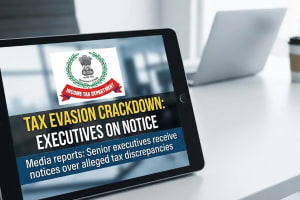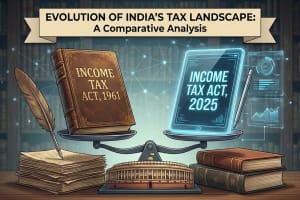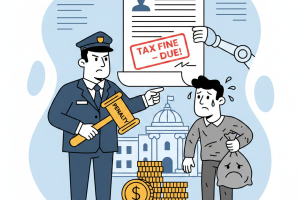
New Scheme of Reassessment - Whether AO is empowered make an assessment of “other issue” as well?

Abstract:
In this article, the author has attempted to analyze the provisions of the new scheme of reassessment in the light of judgement of CIT vs. Jet Airways (I) Limited (2011) 331 ITR 236 (Bom.) and other judgement (which infact were relevant for the old regime of the reassessment) in which it was concluded that once additions have not been sustained/made on the issues forming part of notice issued under section 148 of the Income Tax Act, 1961, no further addition can be made to the issues found subsequently in the course of proceedings under section 147 of the Income Tax Act, 1961. Now, it is important to analyze that whether the ratio / interpretation laid down in those judgements still are relevant in the new regime of reassessment as introduced by the Finance Act, 2021.
Introduction of Old and New Reassessment Proceedings:
The erstwhile provision of the section 147 provides that “If the Assessing Officer has reason to believe that any income chargeable to tax has escaped assessment for any assessment year, he may, subject to the provisions of sections 148 to 153, assess or reassess such income and also any other income chargeable to tax which has escaped assessment and which comes to his notice subsequently in the course of the proceedings under this section…”
Various High Courts and Tribunal had concluded that the AO has reason to believe, that any income chargeable to tax has escaped assessment, for any assessment year, and it was found, that the section puts no bar on the powers of the AO, to put to tax, any other income, chargeable to tax, which has escaped assessment, and which subsequently comes to his notice, in the course of the proceedings, but then, the prefixing words "and also", which succeeded "any income chargeable to tax has escaped assessment for any assessment year, he may, subject to the provisions of ss. 148 to 153, assess or reassess such income". This expression was found to be making clear, that existence of the income, for which the AO formed belief, to have escaped assessment, is a precondition, for including any other income chargeable to tax, escaping assessment, and coming to the notice of the AO subsequently, in the course of the proceedings. Thus, unless and until such income, as giving rise to form belief, for escaping assessment, continues to exist, and constitutes a subject-matter of assessment, under s.147 "no other income" coming to the notice of the AO, during the course of the proceedings, can be roped in.
Indeed, the above interpretation was valid for the old regime. However, it is relevant to analyze the new regime in context of such ratio. Does the ratio laid down by various High Courts is still hold good in context of new regime? In the reading of the Author, the answer is yes, in fact, in the reading of the author, the ratio of said judgements has been deeply incorporated in the new regime. So, let’s analyze the provisions of the new regime of reassessment.
Provision of Section 147 of New Regime:
The section 147 of the Act provides as under:
Income escaping assessment.
- If any income chargeable to tax, in the case of an assessee, has escaped assessment for any assessment year, the Assessing Officer may, subject to the provisions of sections 148 to 153, assess or reassess such income or recompute the loss or the depreciation allowance or any other allowance or deduction for such assessment year (hereafter in this section and in sections 148 to 153 referred to as the relevant assessment year).
Explanation.—For the purposes of assessment or reassessment or recomputation under this section, the Assessing Officer may assess or reassess the income in respect of any issue, which has escaped assessment, and such issue comes to his notice subsequently in the course of the proceedings under this section, irrespective of the fact that the provisions of section 148A have not been complied with.]
The main provision of the section 147 provides that the Assessing Officer may, “subject to the provisions of sections 148 to 153”, assess or reassess “such income”. Here it is relevant submit that the reassessment under new regime is subject to the provisions of the Section 148 to 153 and the phrase “such income” means the income which has escaped assessment and for which the proceedings u/s 148A has been / was initiated.
Now, let’s analyze the explanation to section 147 which provides that Assessing Officer may assess or reassess the income in respect of any issue, which has escaped assessment, and such issue comes to his notice subsequently in the course of the proceedings under this section, irrespective of the fact that the provisions of section 148A have not been complied with.
The main provision provides that Assessing Officer may, “subject to the provisions of sections 148 to 153” assess or reassess “such income” and explanation to said section provides that the AO may assess or reassess the income in respect of any issue, which has escaped assessment, and such issue comes to his notice subsequently in the course of the proceedings under this section, irrespective of the fact that the provisions of section 148A have not been complied with.
So, the explanation to section 147 only carve out / relaxed the requirement of the section 148A proceedings and the said explanation have not carve out / relaxed the requirement of other applicable range of the sections as contained in the main provision of the section 147. Therefore, in the reading of the author,
- the AO can assess or reassess “other issue” and for making assessment of such other issue. For making such assessment or reassessment of the “other issue” the AO has not to comply with the provisions of the section 148A (i.e. Conducting inquiry, providing opportunity before issue of notice under section 148).
- However, for making assessment of such “other issue”, the AO has to comply with the other range of the provisions i.e. 148 to 153 (except 148A) as mandated by the main section (i.e. Sec 147).
Hence, for making an assessment of the other issue, the AO must have to issue a notice u/s 148 and must have to fulfil the requirements of the other provisions of the range of sections as mandated by the main section (i.e. Sec 147).
“The legislature could not be presumed to have intended to give blanket powers to the Assessing Officer that on assuming jurisdiction under Section 147 regarding assessment or reassessment of escaped income, he would keep on making roving inquiry and thereby including different items of income not connected or related with the reasons to believe, on the basis of which he assumed jurisdiction. For every new issue coming before Assessing Officer during the course of proceedings of assessment or reassessment of escaped income, and which he intends to take into account, he would be required to issue a fresh notice under Section 148.” This observation was made by the Hon’ble Delhi High Court in the case of Ranbaxy Laboratories Limited vs CIT (ITA No. 148/2008). The said observation is apparently fit in the new regime as well when we read main provision of the section 147 along with explanation thereto.
In the context of the above discussion, it is also relevant here to analyze the contents of the section 148 notice. The same are reproduced as under:
Notice under section 148 of the Income-tax Act,1961
Sir/Madam/ M/s.
· I have the following information in your case or in the case of the person in respect of which you are assessable under the Income tax Act, 1961(here in after referred to as "the Act") for Assessment Year ……….
· information flagged by the risk management strategy formulated in this regard suggesting that income chargeable to tax has escaped assessment within the meaning of section 147 of the Act. Order under sub-section (d) of section 148A of the Act has been passed in such case vide DIN …………….. dated ……………. and annexed herewith for reference,
2. I, therefore, propose to assess or reassess such income or recompute the loss or the depreciation allowance or any other, allowance or deduction for the Assessment Year …….. and I, hereby, require you to furnish, within 30 days from service of this notice, a return in the prescribed form of the Assessment Year ……….
3. This notice is being issued after obtaining the prior approval of the ……………. accorded on date ……………… vide Reference No. …………………… |
It is apparently clear from the reading of the notice u/s 148 that the law makers, empower the AO to assess or reassess the specific issue involved in the assessment. The reading of the main provisions of the section 147 read with explanation thereto and read with the content of the notice u/s 148, make it clear that the AO is empowered only to assess or reassess “issue” which forming part of the 148A proceedings, forming part of 148 notice and such “issue” fulfilled the requirements of the other applicable sections. i.e. Section 148 to 153. Therefore, the AO is not impowered to assess or reassess other issues which comes to his notice subsequently in the course of the proceedings u/s 147 without fulfilling the requirements of the section 148 to 153 (except section 148A).
Above reading by the author is also rational as the legislature could not be presumed to have intended to give blanket powers to the Assessing Officer that on assuming jurisdiction under Section 147 regarding assessment or reassessment of escaped income, he would keep on making roving inquiry and thereby including different items of income not connected or related with the original issue.
Around decade back, the concept of the limited scrutiny was introduced in the regular assessment proceedings, in which the AO was empowered to examine only the issues identified by the CASS (however, with approval of the higher authorities, the AO is empowered to examine the other issues as well). This attempt of the Board / CBDT can be analyzed in way to reduce litigation and to do not empower the AO to keep on making roving inquiry and to give blanket powers of the assessment to the AO.
Conclusion:
Therefore, in view of the author, the following conclusion can be drawn from the reading of the above article:
- The AO is empowered to assess / reassesses “other issue” (i.e. the issue which not form part of the 148A proceedings and 148 notice). However, for making assessment / reassessment of such “other issue” the AO has to comply with the provisions of the section 148 to 153 (except section 148A).
- The assessment proceedings u/s 147 of the Act are issue specific and hence, for every new issue (which comes to his notice subsequently in the course of the proceedings under this section) must fulfill the requirements of the section 148 to 153 (except section 148A).
- The Judgement of the Bombay High Court in the case of CIT vs. Jet Airways (I) Limited (2011) 331 ITR 236 (Bom.) and Hon’ble Delhi High Court in the case of Ranbaxy Laboratories Limited vs CIT (ITA No. 148/2008), which are relevant for the old regime, can be said to have deeply incorporated in the new regime of reassessment as well.
About Author:
The author, Manish Harchandani (founder of Harchandani & Associates, Chartered Accountants) is practicing Chartered Accountant and engage in the practice of Direct Tax, International Taxation, Transfer Pricing, FEMA and FCRA related advisory, litigation & compliance matters. He can be reached at info@harchandani.in, https://harchandani.in/ and www.linkedin.com/in/mnharchandani
Disclaimer:
The contents of this publication are solely for informational purpose. It does not constitute professional advice or a formal recommendation. While due care has been taken in preparing this publication, the existence of mistakes and omissions herein is not ruled out. Neither the author nor the publisher or its affiliates accepts any liabilities for any loss or damage of any kind arising out of any inaccurate or incomplete information in this publication nor for any actions taken in reliance thereon.
This artical was originally publised on Taxmann (Ref: [2023] 148 taxmann.com 170 (Article))











